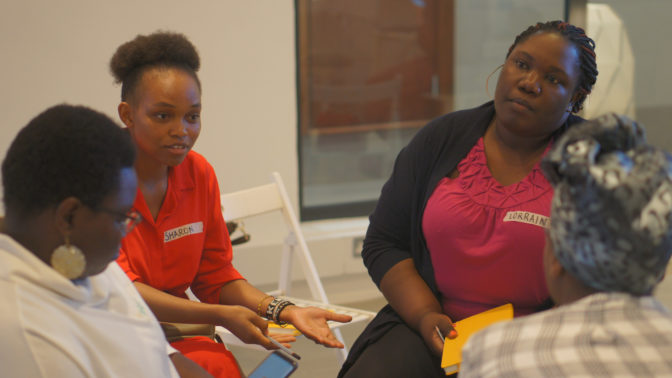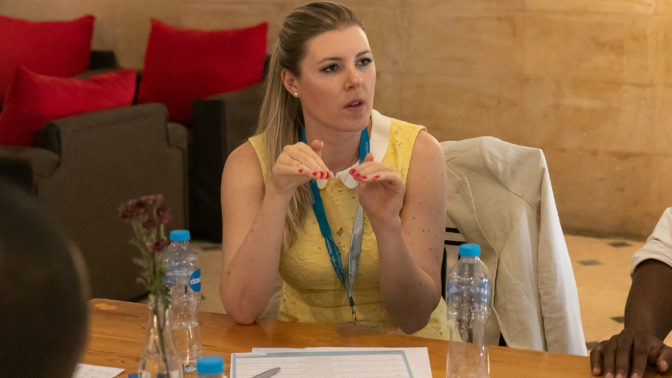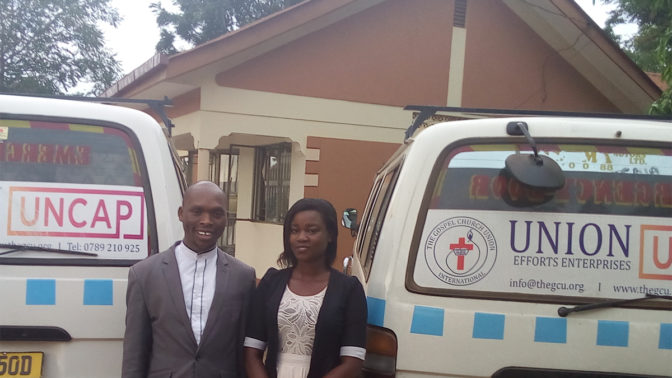Financing for social entrepreneurs – due diligence and technology

We recently sat down with Franziska Reh, CEO and Co-founder of Uncap – Unconventional Capital, to discuss what she and her team have been doing with respect to establishing a data-based process to help get social entrepreneurs supported financially. In our conversation, Franziska explains recent events, how the COVID-19 pandemic impacted their plans and how they have continued to push forward, overcoming obstacles at every turn.
Siemens Stiftung: Since the roundtable on innovative financing in Cairo, and throughout the COVID-19 pandemic, your team has been busy establishing new approaches to fund entrepreneurs. Can you explain what you and your team at Uncap have been working on to increase entrepreneurial investments by way of technological means?
Franziska: Shortly before the roundtable in Cairo in 2019 we had just set up our company and were right in the middle of testing our idea with a small pilot. A pilot that would show us if we are able to select successful entrepreneurs with a completely remote, data-driven, and largely-automated investments process that heavily focuses on entrepreneurial potential. We’d paid out the first 23 investments in Kenya, Uganda, Rwanda, and Nigeria just when the pandemic started, an immediate stress test. The months after were tough on all of us, our investees and our team, for different reasons. We struggled to raise funding for an untested, crazy idea in the midst of a pandemic after a large investor dropped out and our investees struggled to keep their businesses afloat, and themselves and their families safe. In April, first payments of our investments trickled in and with it a first glimpse of proof of concept. Over the months to come, the portfolio proved to be quite resilient and stable, showing promising performance despite COVID-19. We decided to double down on our idea, hired a CTO and a developer team to translate our idea into our first full-tech platform. We poured everything we learned over the last 1.5 years into the concept, from psychometric correlations, data biases, and equity-based revenue sharing models to behavioral interventions. This platform now enables us to provide seed funding to thousands of entrepreneurs in an unbiased and low-cost way.

Siemens Stiftung: From our last conversation, you highlighted how the cost of due diligence could be a hinderance to the funding/investment process. Has your team been able to find a lower-cost alternative method here?
Franziska: Finding a solution to this is the main reason for our existence. We believe that in order to make seed funding truly accessible for every good entrepreneur you need to find a way to lower the cost, make it scalable, and unbiased at the same time. A seed investment of $20,000 USD is economically not feasible with traditional models, too large for microfinance, too small for investors, and too risky for banks. You have no collateral and huge information asymmetries. Biases on the side of investors, which are human and natural, are amplifying this gap by hugely neglecting funders that don’t fit the historically traditional image of a founder when it comes to race, gender, and background.
Siemens Stiftung: You specifically mentioned that you and your team were testing assessment tools that would screen an entrepreneur and their potential. Have you made any headway on this front?
Franziska: To date, the pilot portfolio has been selected mostly based on indicators associated with entrepreneurial potential, such as certain personality traits, skills, and behavior. Most of our hypotheses back then have never been fully tested so we used the pilot portfolio to do so. The learnings from this portfolio as well as further extensive research and conversations with experts, have been built into the new platform. This platform now assesses entrepreneurial potential based on scoring a much larger range of indicators with better, faster tests and new tools such as simulated video interviews. The whole platform, from application to deal making and portfolio management is built on behavioral science and will become more predictive and precise with every new applicant and investment.

Siemens Stiftung: Can you tell us about any progress made in terms open source platforms for due diligence in terms of entrepreneurial accounting methods used by social entrepreneurs?
Franziska: We’ve seen continued interest in building platforms that match investors and entrepreneurs while also conducting certain parts of the due diligence, e.g. validation of certain data inputs such as financials, or credentials and referrals. Many platforms haven’t seen the traction they hoped for, and also need, in order to provide value to both sides. But there are some promising developments in sub-Saharan Africa and I am curious to see how they address some of the existing shortcomings. I see great potential if you manage to achieve a continuous sharing of data between different platforms as a way to help entrepreneurs create validated and stringent track records.
Siemens Stiftung: We understand that you plan to scale your current activities to set up a funding vehicle that could support about 200 enterprises by the end of 2021. How do you plan to do that and who are your investors?
Franziska: This year really is crunch time for us. Scaling from 23 to 200 investments it no small feat but we are well prepared and excited to take the first step towards “access for all”. Our platform will go live in summer with a call for applications where we are planning to get between 2,000 – 5,000 entrepreneurs to apply for funding. Out of these, we want to fund at least 200 of the most promising entrepreneurs by the end of year, before scaling to 2,000 entrepreneurs next year.
To do that, we are now setting up an investment vehicle with the sole purpose of investing in entrepreneurs. So far, we have done that directly from our own balance sheet at Uncap. Every stage of a business has its own type of investors and we are extremely thankful for our fantastic group of business angels, who have supported us in the riskiest phase of our journey. Now it’s time to take the next step. The investment vehicle will have a small equity tranche and a larger debt tranche, tailored to the payment profile of our investees. This way we are offering a high-risk, full upside option and lower risk, interest-based one for investors. With every new investment round, we learn and adapt, establish our track record and, thus, more certainty in portfolio performance. We want to reach 50,000 entrepreneurs by 2030, equaling $1 billion in investments deployed and 1 million jobs created, so this is the first step on our way to eventually being able to offer a low-risk, high volume and high impact alternative for pension funds, foundations, and other long-term asset holders.